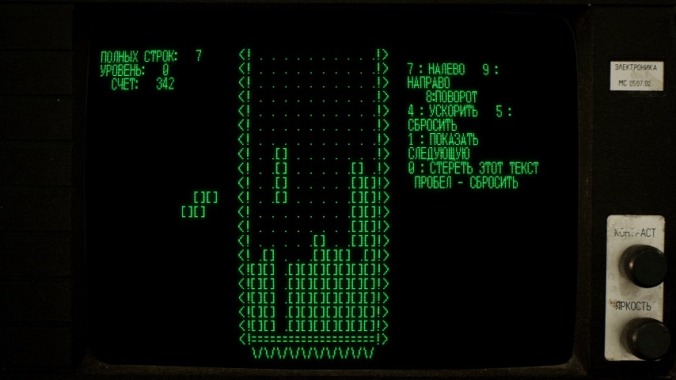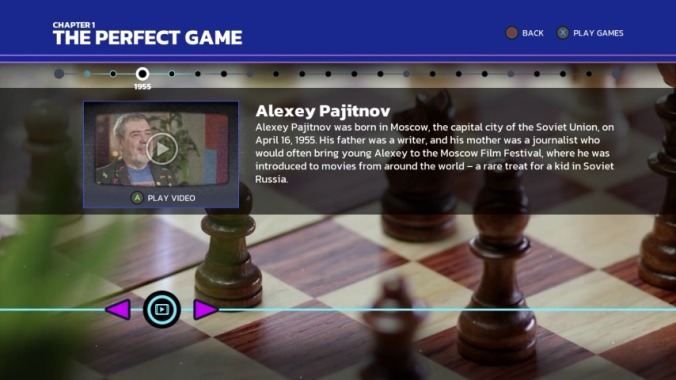Tetris Forever Tells the Convoluted History of Tetris—Again
Images courtesy of Digital Eclipse
If you’re a stranger to Paste’s games section, or the personal tastes of its editor (um, hi), you might not know that Digital Eclipse’s Gold Master Series is probably our favorite thing in games right now. Unlike most compilations of retro games, the Gold Master Series isn’t just a menu of games to play with a paragraph or two of info about their creation. It’s a unique combination of documentary and games comp, digging deep into the history of games and placing them within the context of the industry and the medium at the time they were created. The Gold Master Series supplements the games themselves with newly filmed interviews and copious amounts of material from the game’s era—behind-the-scenes photos, design documents, vintage ads and other promotional material, and more. And it’s all arranged on easy-to-follow timelines; if you follow them in sequence you’ll learn a lot about how a game was made before getting to play it yourself.
For example, that means fastidiously detailing the development of Jordan Mechner’s groundbreaking 1984 computer game Karateka, using playable versions of prototypes and earlier games designed by Mechner to help show how different Karateka was from what came before. It means turning Atari 50 into an hours-long examination of the earliest days of arcade and home videogames, from Pong’s success in the early ‘70s, up to the crash of 1983, and then through the long, slow decline of Atari with 2600 and 7200 games from the late ‘80s. It means delving into the life and work of iconoclastic designer Jeff Minter. Every Gold Master Series release (and Atari 50, which isn’t officially part of the series, but introduced the format) has revealed new details about important gaming history, whether it’s fairly obscure (the painstaking lengths Mechner went to to achieve his cinematic goals) or one of the most well-known stories in gaming (the rise and fall of Atari).
The latest installment comes out on Nov. 12, and tries something new for the Gold Master Series: it focuses on one of the two or three biggest targets something like this could ever aim for. Tetris Forever digs into the origins of the 40-year-old smash puzzle game, a game that, unlike 2600 hits or Minter’s psychedelic arcade trips or Mechner’s playable kung fu movie, will remain popular and relevant with all generations for as long as anybody plays videogames. And it speaks to the greatest strength of Digital Eclipse’s Gold Master Series that the entry for the most famous and popular game it’s done yet—perhaps the most famous and popular videogame ever, really—is the least essential one so far.

We’re not saying you need an obscure topic to make a great Gold Master Series release, but almost no games are less obscure than Tetris. And familiarity with a game isn’t a problem at all; in fact, using one of the biggest games ever to show off their format is how Digital Eclipse can make this series so popular and undeniable that even the biggest developers and publishers will want to work with them in the future. The hangup here is that the story of Tetris is incredibly well-known at this point. If you’re the kind of person who’d go out of their way to learn about videogame history, odds are you already know about how Russian computer engineer Alexey Pajitnov came up with Tetris and the culture clash between East and West that turned the game’s worldwide expansion into a tangled legal mess. For the first time a Gold Master Series game feels like it’s following in the footsteps of others instead of doing something new and vital.
This story has been told in detail several times before. Dan Ackerman’s book The Tetris Effect, Box Brown’s graphic novel Tetris: The Games People Play, and Apple’s movie Tetris (in which Henk Rogers, the Dutch-American game designer and businessman who helped export the game from the Soviet Union and who today runs The Tetris Company with Pajitnov, is played by Taron Egerton of The Gentleman and Rocketman fame) have all explored this history, and although it’s good to see Pajitnov and Rogers tell it in their own words, there aren’t many major or notable details that haven’t already been discussed elsewhere.
If you haven’t read the books, seen the movie, or ever looked into the origins of Tetris, you’ll probably be fascinated (and a little baffled) by the misunderstanding that resulted in multiple companies thinking they had the rights to release Tetris in the ‘80s. There are over 90 minutes of video footage here, including lengthy interview sessions with both Pajitnov and Rogers. Digital Eclipse always does a fantastic job researching and presenting these packages, and Tetris Forever is no different.

-

-

-

-

-

-

-

-

-

-

-

-

-

-

-

-

-

-

-

-

-

-

-

-

-

-

-

-

-

-

-

-

-

-

-

-

-

-

-

-









































